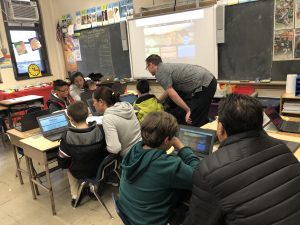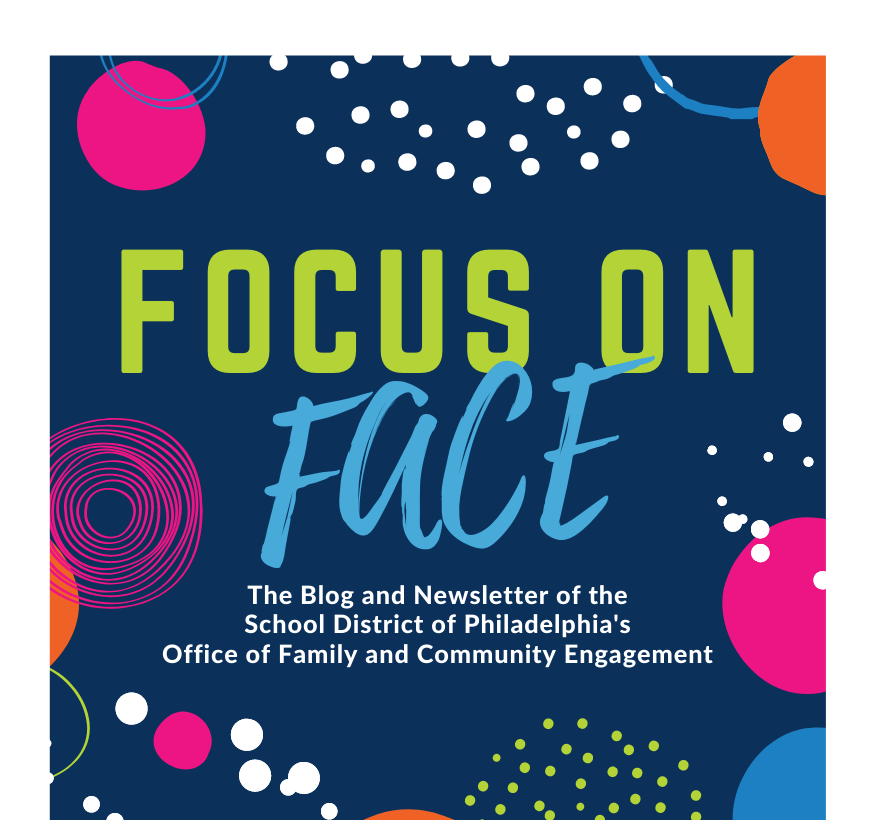
Families practicing with their children at a Literacy Night at Mayfair Elementary School in 2018.
Many schools in Philadelphia are catching wind of hosting literacy events as a way of underscoring the importance of literacy, sharing literacy skills, and bonding the school community together around such an important academic topic. Have you been wondering how to take your next literacy event to the next level? Here are a few ways you can make it even more engaging and exciting for everyone involved!
Get students involved in planning and invitations.
Who better to brainstorm fun literacy activities than the students themselves? Ask students to think about different stations or activities that they could plan and even spearhead during the event. Students may be able to come up with strategies and activities that they’d like to share with their families, which would make the whole night even more interactive and relevant! Another way to increase student participation and ownership is to encourage students to make invitations for the event that can be distributed to families. You can even have an invitation designing contest for students to take part in or a prize for the classroom that has the largest family turnout.
Have a theme or plan the event around a specific book.

Photo: Senior Airman Sarah Hall-Kirchner
Another way to make the event even more appealing is to center it on a specific theme. The theme doesn’t have to be related to literacy but can tie literacy strategies and activities together. For example, you might want to do a literacy bingo night through which families can have fun playing bingo and answering questions that are related to literacy. The theme can also be related to a specific author or even a specific book. Maybe you want to do a Cat-In-The-Hat night and staff members wear silly hats during the event. Specifically themed nights can help draw more people to the event to have a fun time together.
Model behavior at the event that can be replicated at home.
While having fun, a strong benefit to holding a literacy night is that parents and caregivers can learn different strategies to improve literacy skills that they can take back home to apply. Teachers can model behavior, lesson plans, or literacy strategies that can improve literacy skills for children. This modeling can also be done through fun games such as fishing for sight words or doing a comprehension contest. You can also teach parents what kind of questions they can ask to their children while reading together, which can help enhance literacy skills as well.
Get the community and community partners involved.
Another way to enhance your literacy event is to not only invite families but to also invite your community and community partners. Send invitations to various community partners to invite them to the night. Put up posters at local businesses, libraries, or coffee shops to spread the word. Other ways to draw more people can include having small raffles and door prizes and serving food or snacks. Getting the community involved can become even more interactive and the importance of literacy will be supported not only by individual families but by the larger community as well.
Tie literacy to other subjects
Who says the night has to only be about literacy? Join forces, make this night an interdisciplinary night through which you’re promoting not just literacy skills but math or science skills as well. You can also tie in real life skills such as cooking or shopping with literacy skills. Maybe you can mimic a grocery store and teach all the ways that students and families can apply reading strategies at the grocery store. Maybe you can do a cooking event in which students learn how to read recipes together and understand what the recipes are asking for. Reading can be more fun when we apply it to real-life circumstances!
So whether it’s a small event or an entire evening shindig, gather a few people who are interested and consider hosting a literacy event! It can be an interactive way to teach families how important it is for our students to care about literacy and improving their skills.

